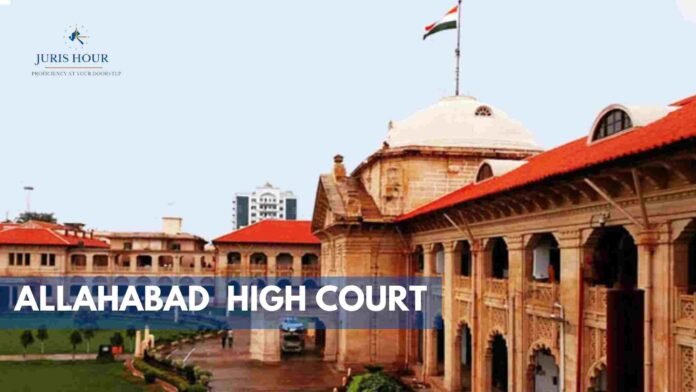The Allahabad High Court has held that the expiry of e-way bill is not attributable to the intention to GST evasion.
The bench of Justice Piyush Agrawal has observed that the goods in question were moving pursuant to the agreement entered in between the petitioner and National Geo-Spatial Data Centre, Department of Surveyor General of India, Government of India, which tracking devices of the vehicles were to be delivered and to be maintained by the petitioner. It is also not in dispute that the goods were accompanied with a genuine tax invoice and e-way bill, but the e-way bill expired before reaching its destination.
The petitioner/assessee, M/S Trimble Mobility Solutions India Private Limited is engaged in providing vehicle tracking services to customers located across India. The petitioner is duly registered under the GST in Haryana, Maharashtra, Uttar Pradesh and Tamilnadu. He further submits that the petitioner had a contract with Surveyor General of India, namely; National Geo-Spatial Data Centre, Department of Government of India, for continuous supply of vehicle tracking and services.
For providing the services, GPS devices were required to be delivered, for which e-way bills and tax invoices were issued.
The e-way bills were valid for 12 days from the date of its generation. While the goods were in transit, the vehicle developed a breakdown.
Thereafter, without informing the petitioner, the driver of the vehicle tried to get it repaired, but failed. Thereafter, the driver shifted the goods in another vehicle. Due to the said exigency, the goods could not be transported within the time-line as prescribed in the e-way bill and therefore, the e-way bill expired on 20.12.2022. The goods, on its journey, were intercepted on the ground that e-way bills had expired, but before passing of the seizure order, new e-way bills were generated on 22.12.2022 at 11.30 a.m.
The order under section 129(3) of the GST Act was passed on 27.12.2022, against which the petitioner preferred an appeal, which has been dismissed without considering that the vehicle developed a break down and the goods were transported in another vehicle and during the said process, the earlier e-way bill was expired, but new e-way bill was generated and therefore, there was no intention to evade payment of tax.
The department contended that had the goods not been detained, the petitioner would have succeeded in its attempt to evade payment of tax. The goods in question, when intercepted, were accompanied with expired e-way bills. Even assuming without admitting that the earlier vehicle developed a breakdown, the petitioner ought to have generated a new e-way bill before the commencement of onward journey. Therefore, the petitioner had violated the provisions of the Act and the Rules and the proceedings have rightly been initiated against the petitioner.
The court held that orders cannot be sustained in the eyes of law and liable to be quashed.
Case Details
Case Title: M/S Trimble Mobility Solutions India Private Limited Versus State Of Up And 2 Others
Case No.: Writ Tax No. – 205 Of 2024
Date: 07/10/2025
Counsel For Petitioner: Kushagra Agrawal
Counsel For Respondent: C.S.C.
Read More: Allahabad High Court Stays GST Demand on Mining Royalty

